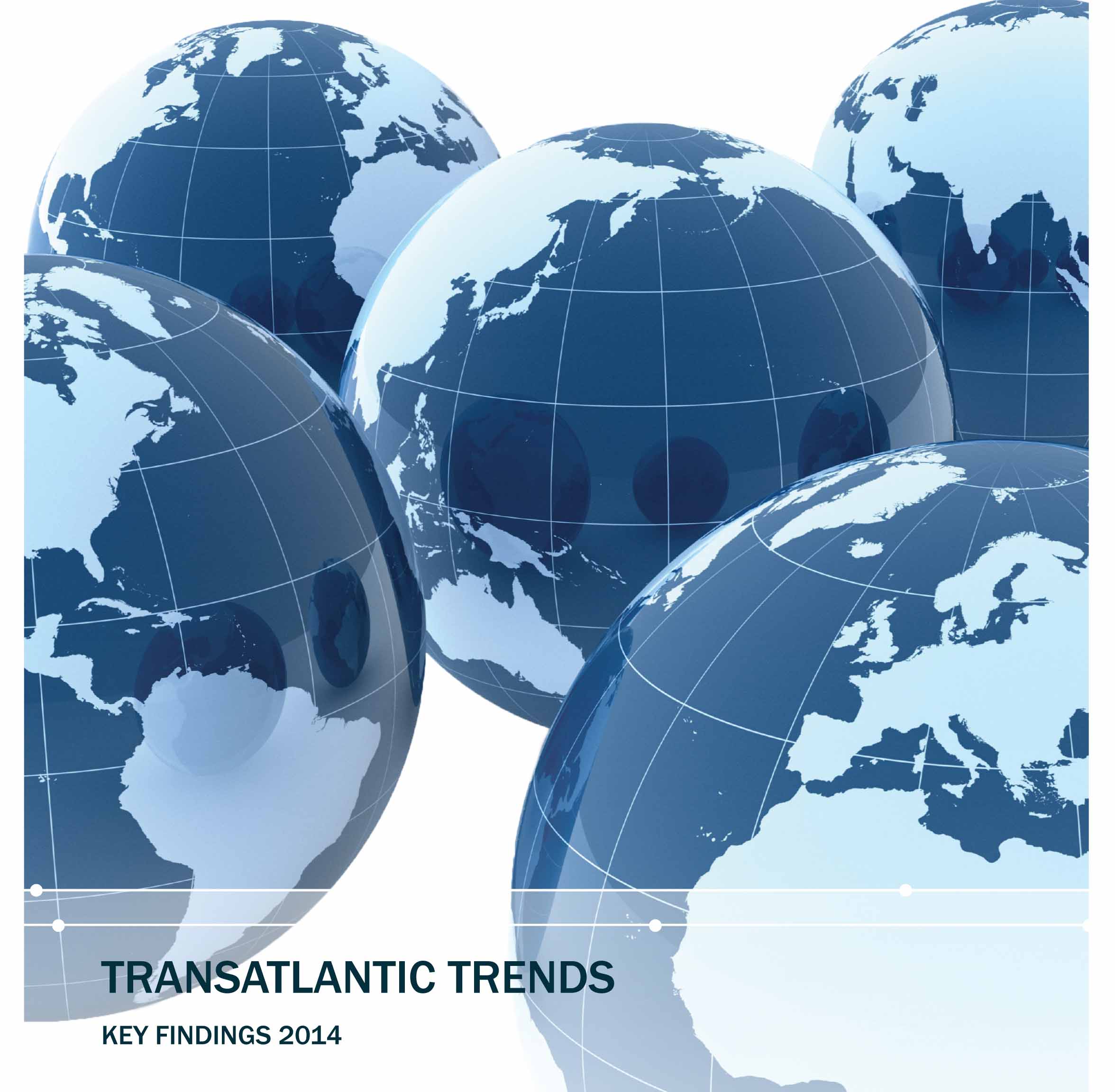A major survey of public opinion in the UK, United States, Turkey and 10 European countries released today found increases in public confidence primarily down to improvements in the economy. The Transatlantic Trends survey found that the number of people in the UK saying they had been personally affected by the economic crisis had dropped significantly to 62% (down seven percentage points since 2013), compared with much higher percentages in Spain, Portugal and Italy where confidence has remained the same or gone down.
Other key findings of the report:
- There has been a steady decrease in the proportion of UK residents stating immigration as the most important issue facing the country (25% in this year’s survey, compared to 30% in 2011 and 37% in 2010).
- A small majority (51%) said they were unworried by immigration from within the EU, a slightly smaller proportion than that in EU countries as a whole (55%)
- Majorities in Europe (58% in the UK) said they have immigrant friends.
- 51% of UK respondents said that membership of the EU had strengthened their economies.
- In a new question, Transatlantic Trends respondents were asked how they felt about recent discussions about the UK leaving the EU. Respondents in almost all other EU countries thought(51% overall) that more should be done to accommodate British concerns. 57% of UK respondants agreed; while a third thought that the UK should leave the EU.
- In another new question respondents were asked to name what they thought were the two most common reasons for immigrants to come to their country. 62% of UK respondents selected “to work” as the first or second most common reason.
- People in Europe were mostly optimistic about the integration of immigrants – particularly about the second generation, with 63% of UK respondents saying that second generation immigrants were integrating well (up 2 percentage points since 2013) compared with 61% of Europeans overall.
In 2014, Transatlantic Trends repeated an experiment from 2010 to see how respondents’ perceptions of the number of immigrants differ if they are made aware of immigration statistics. The results supported the outcome of 2010 – that information changes perceptions about the number of immigrants. Those who heard an official estimate before answering the question were less likely – especially in the UK – to say there were “too many” immigrants in their country. In the UK the percentage dropped from 54% down to 31%. This was consistent across the political spectrum – the numbers of UKIP and Front National (France) voters thinking that there were “not many” migrants rose 10 fold if the question included information about the real numbers of migrants in each country.
Find out more on the Transatlantic Trends website.

